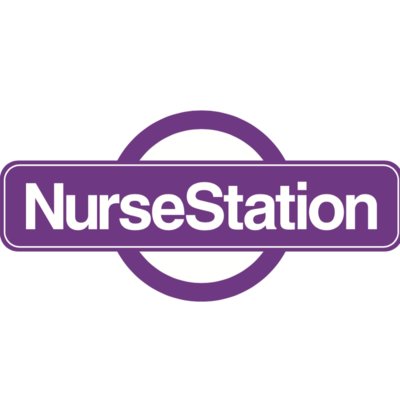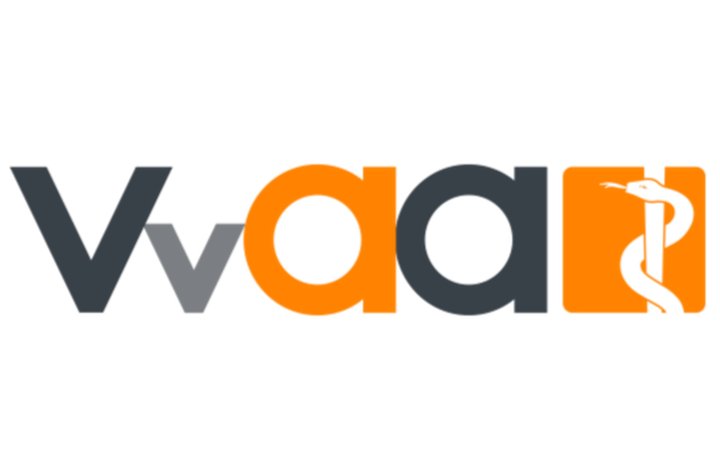University of Southampton 2022
 I was supposed to be going to Ghana with a friend from uni. They couldn’t make it in the end so I ended up travelling by myself.
I was supposed to be going to Ghana with a friend from uni. They couldn’t make it in the end so I ended up travelling by myself.
I was a bit apprehensive but I told myself I had to go ahead with it and I’m so glad I did. I got chatting to some really friendly people on the plane and that helped too.
Once I’d gone through immigration, I saw one of the Work the World staff members waiting for me in arrivals wearing their blue t-shirt. He was really welcoming and chatty. We took a minibus back to the house and I slept most of the way there.
It was reassuring having someone there to meet me like that. I wouldn’t have wanted to have travelled to the Work the World house by myself. It made me feel really safe.
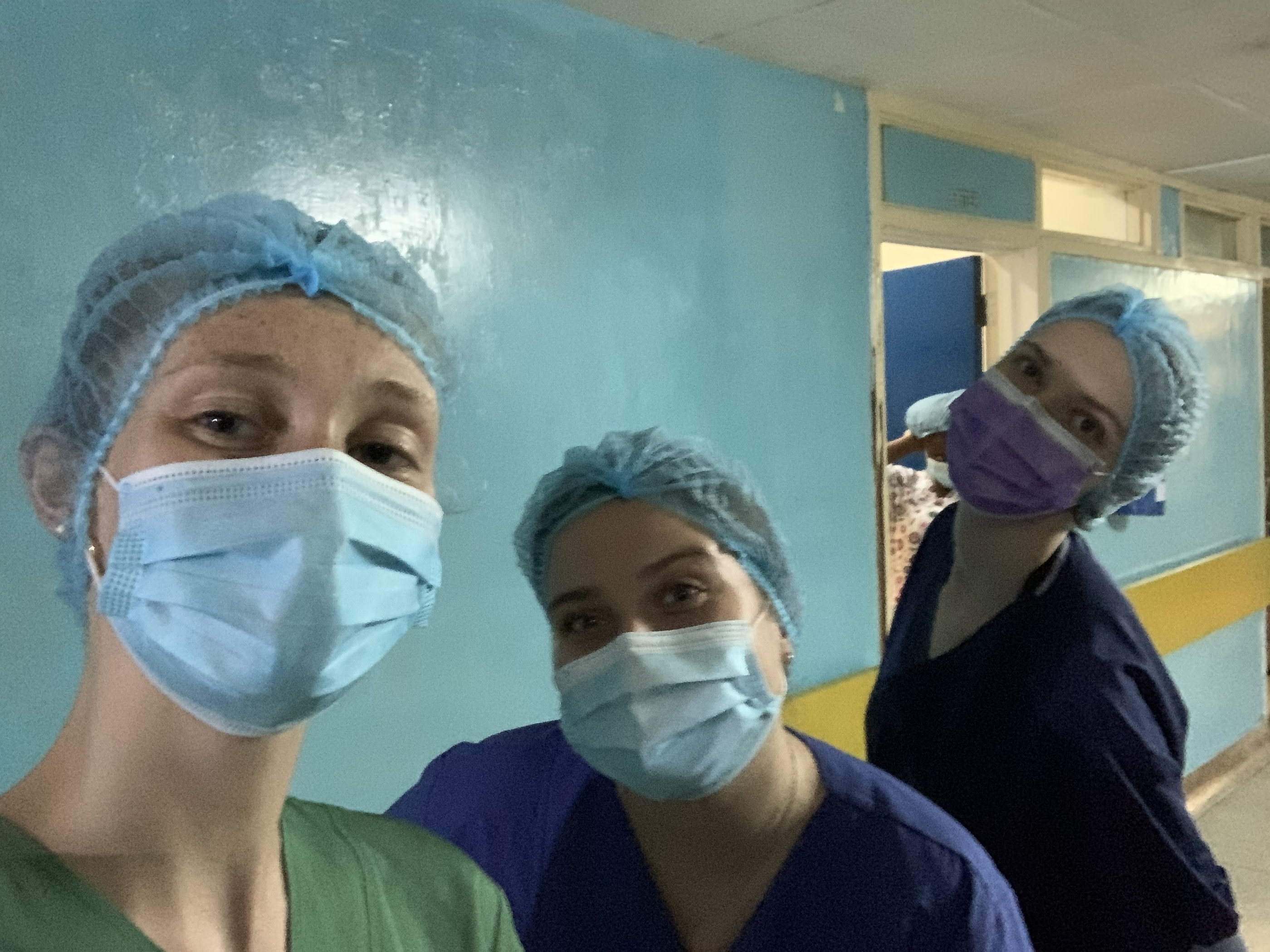
I had some time to settle into my room and meet the rest of my housemates over the next day. Then we went on our city orientation and then to the hospital to meet the staff from the departments we were going to get experience in.
When I first walked into the hospital I realised that the lack of resources was worse than I had thought. It was a bit of a reality check because it was so different to back home. But I was excited to get stuck in and start learning how midwives in Ghana worked.
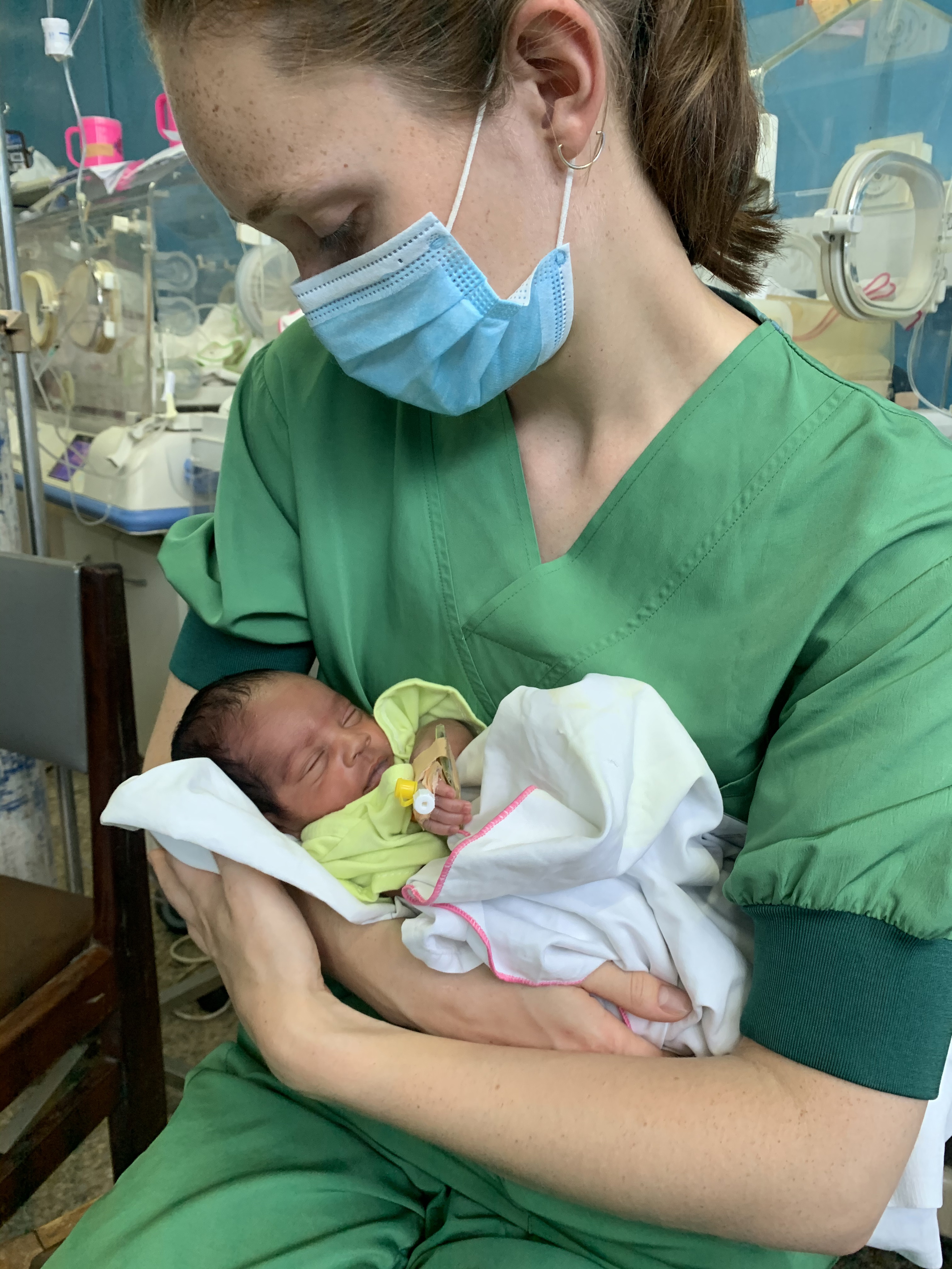 The first thing that struck me was how outdated some of their equipment was. There were quite a few things we have in the UK that they didn’t have at all in my placement hospital. And the sanitisation and hygiene procedures were a lot more relaxed than I was used to.
The first thing that struck me was how outdated some of their equipment was. There were quite a few things we have in the UK that they didn’t have at all in my placement hospital. And the sanitisation and hygiene procedures were a lot more relaxed than I was used to.
The staff in general were relaxed in their approach to most things. Even if there was an emergency, you would see staff walking over in no particular rush. It was just about getting used to that way of doing things. I knew I was there to learn how they did things and not to try to change local practices, so I made the effort to try to take it all in as a guest in their hospital.
Another big difference was the level of care women received. I’m a qualified midwife now, so back at home I only have one woman to look after. But in my placement hospital in Ghana, there was a bay of women all in labour. There weren’t enough staff to sit with them and give them support — they were just sort of left to get on with it. The midwives did go over to the women and listen to their babies, sometimes telling them that they were doing really well. But I didn’t see much of that, especially compared to what we’re trained to do in the UK.
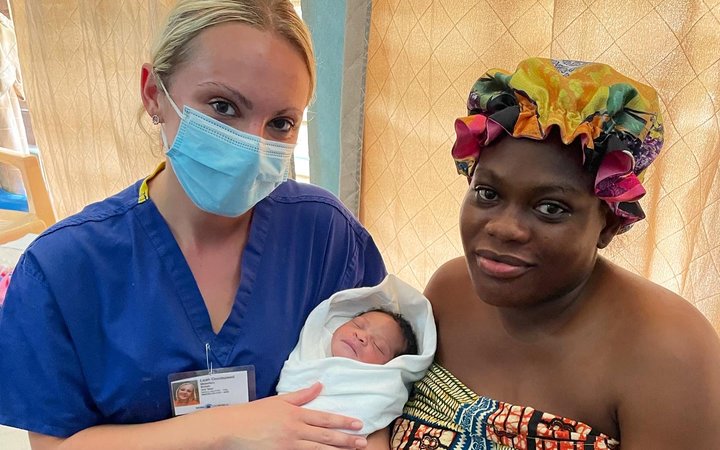
I chose to spend some time sitting with women and holding their hands, offering them some encouragement as they were labouring. I was there to learn how things were done by local midwives, but I used my judgement and the women responded really well to being comforted. One of the reasons I did this was because they were all in there on their own. It’s not like in the UK where you can have a partner with you for support.
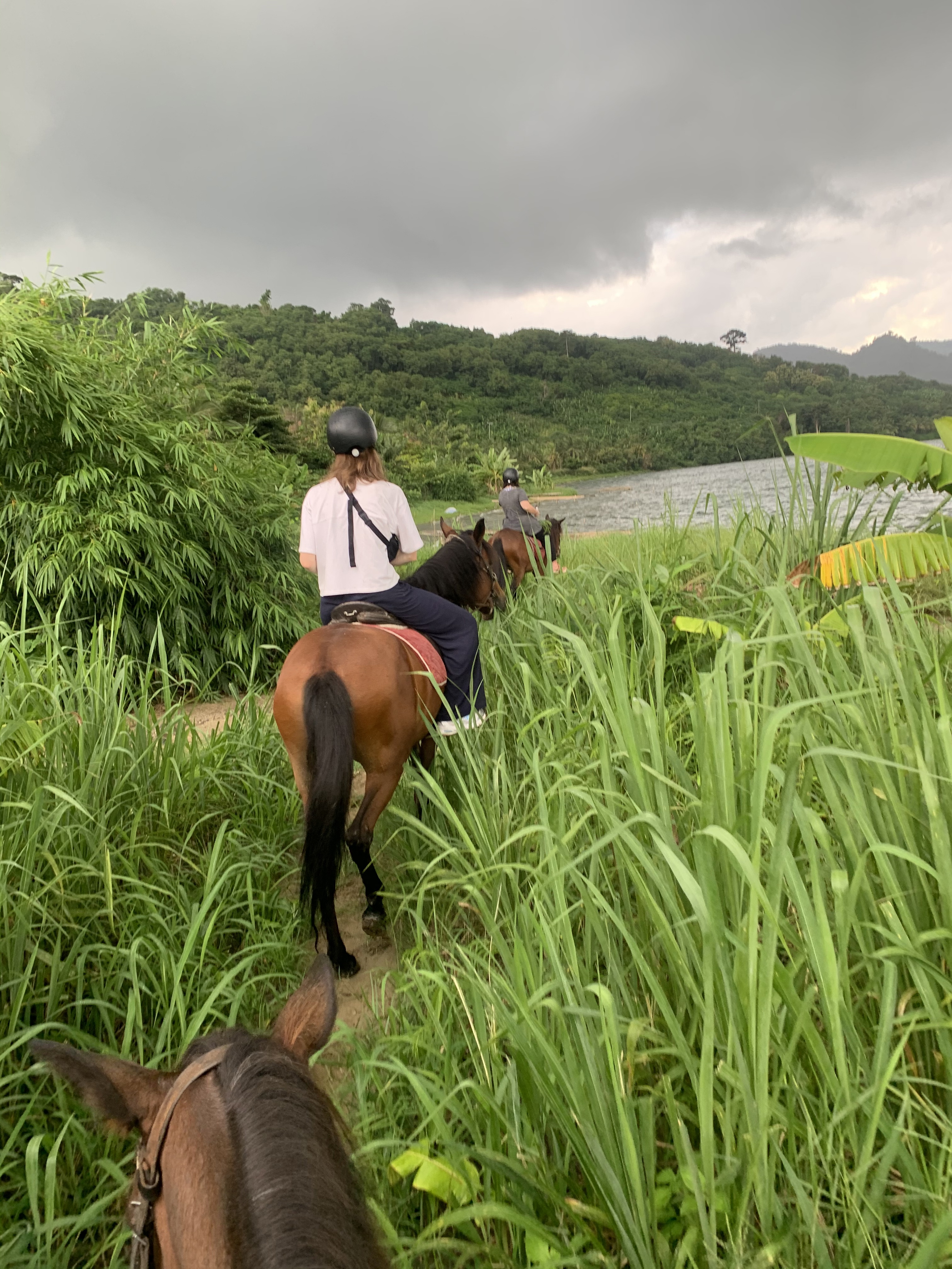 There were some difficult situations that really helped reinforce my appreciation for just how amazing the NHS is. There was one woman whose baby I was there for the birth of. She’d clearly had a haemorrhage and lost a lot of blood. I’m a qualified midwife and I’d seen things like this many times before.
There were some difficult situations that really helped reinforce my appreciation for just how amazing the NHS is. There was one woman whose baby I was there for the birth of. She’d clearly had a haemorrhage and lost a lot of blood. I’m a qualified midwife and I’d seen things like this many times before.
I judged that she’d lost at least a litre and a half of blood, but the local staff wrote down 400ml. In the UK we would have weighed the blood loss to get a better idea of how much she had lost, but they didn’t have the resources to do that in this hospital.
The result was that when the mother got out of the chair, she collapsed onto the floor. They did manage to get her up and to a bed in the end, but it was a challenging situation. It really opened my eyes to the way things can be in a low-resource hospital, and that was the whole point of the trip.
 As I mentioned before, I was there to learn and not to try to change the way they did things. But there was still plenty of room for conversations with the local midwives. We talked a lot about the differences between how we each practised.
As I mentioned before, I was there to learn and not to try to change the way they did things. But there was still plenty of room for conversations with the local midwives. We talked a lot about the differences between how we each practised.
I remember having a good conversation with one of the head midwives about water births — they don’t have them in Ghana but she knew all about them and what the benefits could be. The local midwives really did know what they were talking about and were amazing at their jobs. It was the lack of resources that stopped them from practising the way they wanted to practise.
When we weren’t on placement we had loads of time to explore the local area. In the evenings we went out to some local bars and clubs. They were really fun and the local Ghanaian people were so friendly. There was always music and dancing, and they had football on one of the nights… everything you’d expect from a bar. One thing we didn’t expect was that one of the clubs we went to had a pool in it!
 During the weekend in the middle of our trip we went to Kakum National Park. We stayed in a treehouse for the night and it was the experience of a lifetime. When I say a treehouse I don’t mean like one of those kitted out Airbnb treehouses — it was a proper treehouse in the middle of this rainforest.
During the weekend in the middle of our trip we went to Kakum National Park. We stayed in a treehouse for the night and it was the experience of a lifetime. When I say a treehouse I don’t mean like one of those kitted out Airbnb treehouses — it was a proper treehouse in the middle of this rainforest.
We spent some time trekking through the rainforest, and climbed up into the forest canopy to walk along these platforms that were suspended from the trees. I’m scared of heights so it was a big thing for me, but I’m so glad I did it because it was amazing. The following day we went to a crocodile sanctuary which is something I can safely say I’ve never done before!
That evening we went to a really nice hotel with this beautiful beach outside, which felt like a well-deserved bit of luxury at the end of an action-packed weekend.
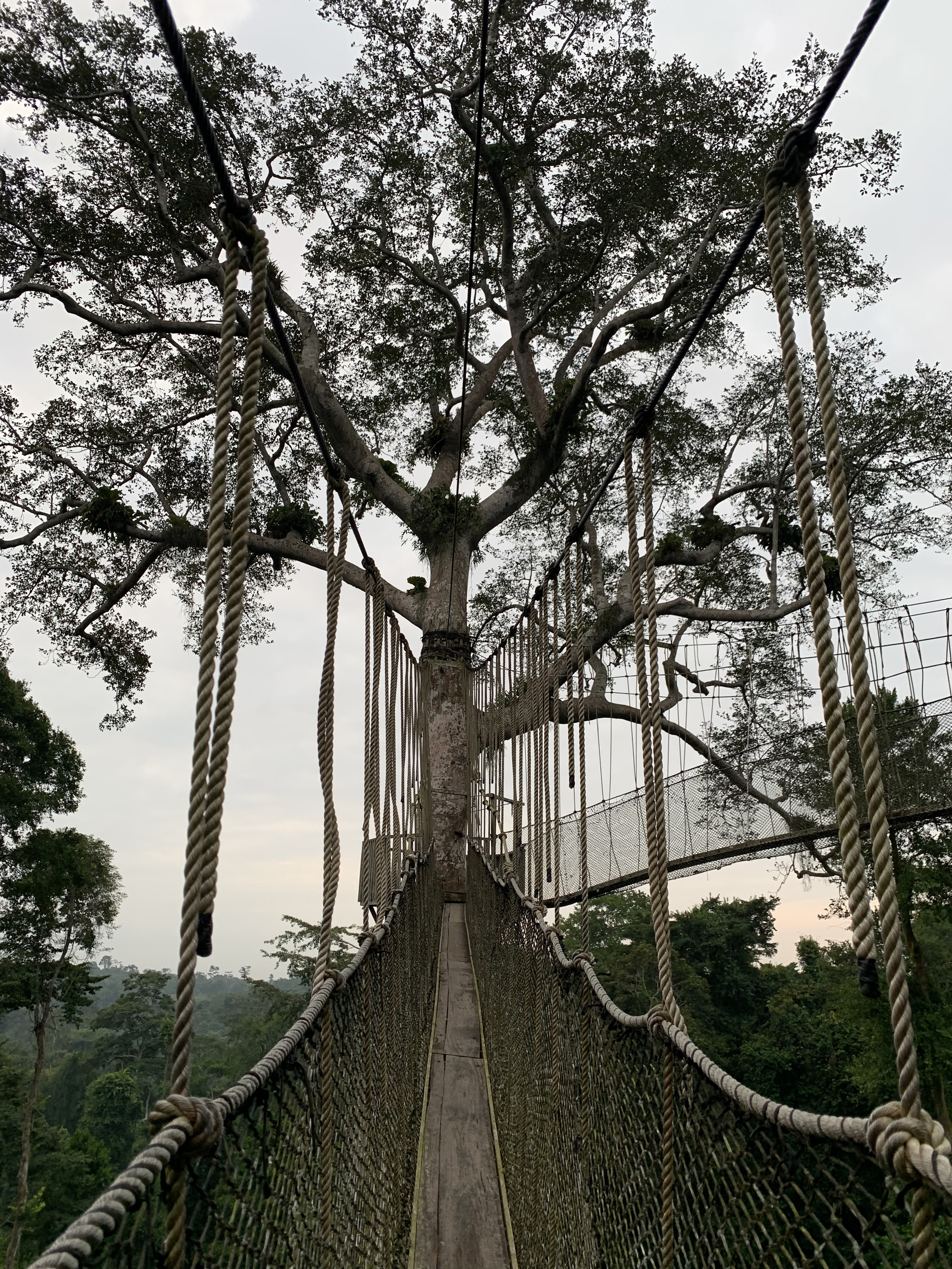
If you want to do a trip like this I’d just say absolutely go for it. It was one of the best experiences of my life. It makes you so much more confident in yourself, and if you let it pass you by you’ll regret not taking the chance while you had it.

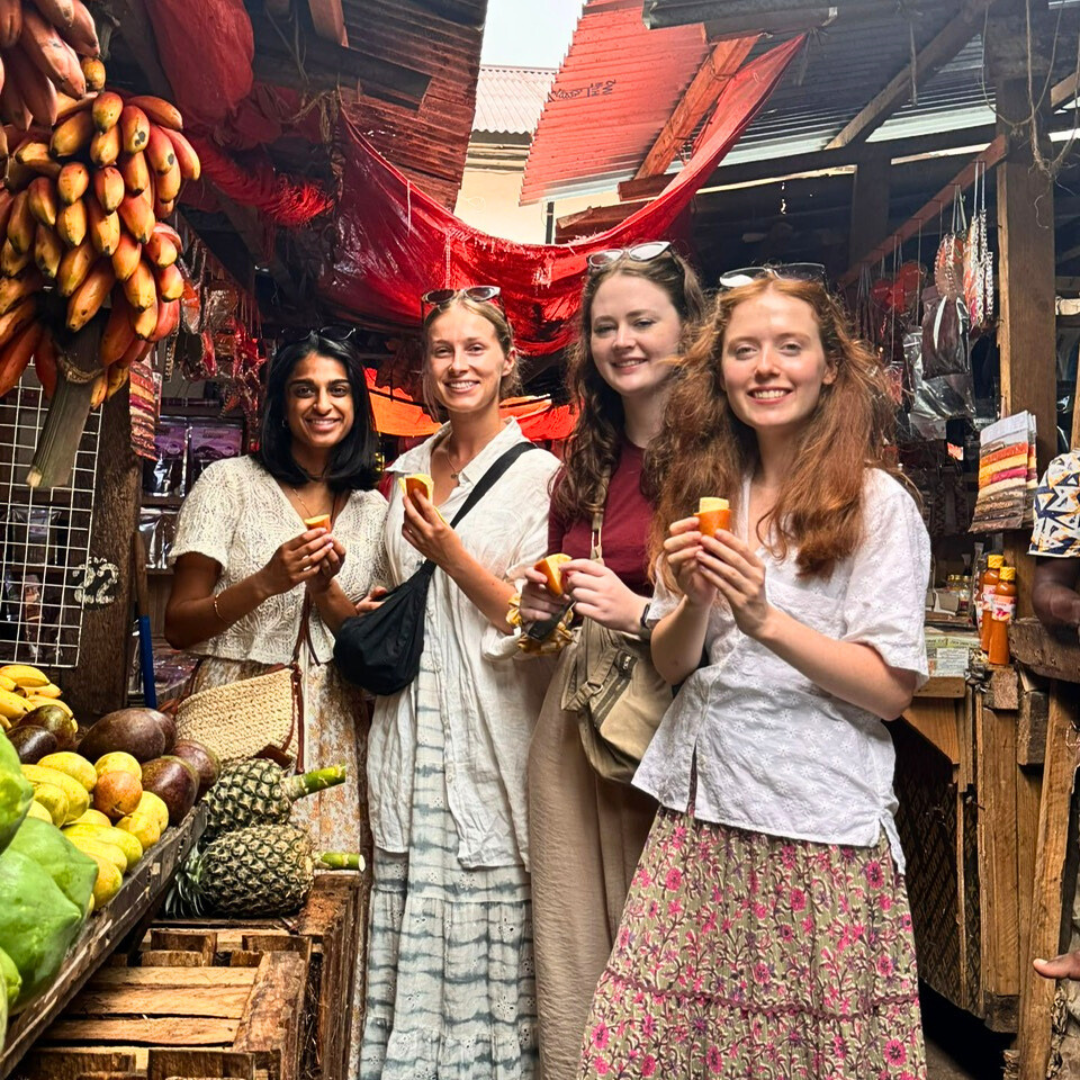
%20Square.jpg)
